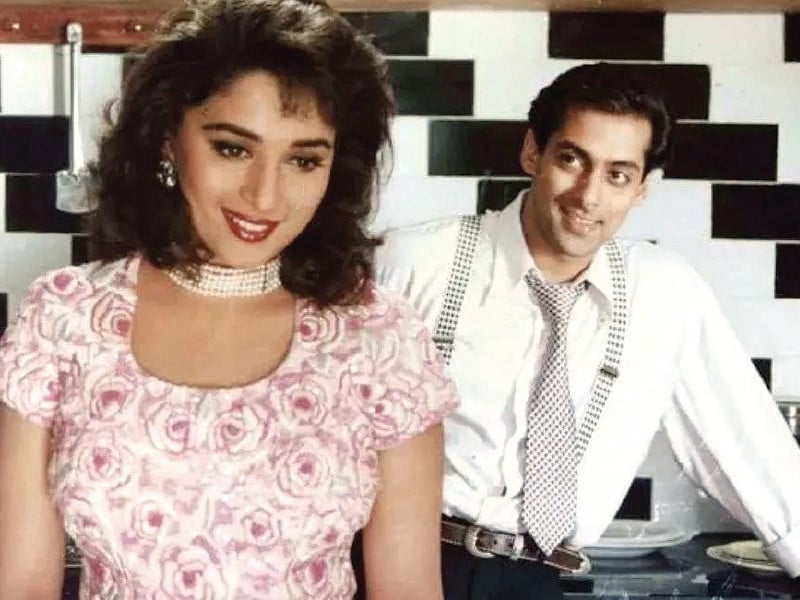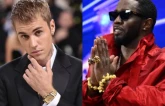
As the monsoon rains drench the subcontinent, Bollywood is serving up a cinematic downpour of its own. August 2024 has become an unexpected treasure trove for film buffs, with a quartet of iconic re-releases hitting theatres across India. From star-crossed lovers to coal mafia dynasties, from family dramas to coming-of-age romances, this eclectic mix of cinematic gems is giving audiences a chance to relive the magic on the big screen.
While our friends across the border in Pakistan may not have the chance to experience these re-releases in theatres, the timeless appeal of these films transcends geographical boundaries. So, let's dive into this celluloid time machine and explore why these four films continue to captivate audiences, even years after their initial release.
'Laila Majnu'
First up on our nostalgic journey is Imtiaz Ali's Laila Majnu, which made a triumphant return to theatres on August 9. This modern retelling of the classic Persian love story transplants the tale to the picturesque yet troubled valleys of Kashmir.
When it first graced screens in 2018, Laila Majnu may not have set the box office on fire, but like a fine wine, it has aged beautifully. The film marked the Bollywood debut of Triptii Dimri, who has since become one of the industry's most sought-after talents. Paired with the brooding intensity of Avinash Tiwary, their on-screen chemistry crackles with the electricity of first love. The lovers' struggle against familial opposition becomes a metaphor for the larger conflicts that have long plagued the region.
The film's visual palette is a feast for the eyes, capturing the ethereal beauty of Kashmir's landscapes. From snow-capped mountains to blooming gardens, the scenery becomes a character in itself, mirroring the passionate highs and devastating lows of Laila and Qais's romance.
But it's not just the visuals that make Laila Majnu worth revisiting. Ali's screenplay deftly navigates the fine line between reverence for the original tale and contemporary relevance. The addition of Qais's sojourn in London adds a globalised dimension to the story, reflecting the realities of a diaspora caught between two worlds.
'Gangs of Wasseypur'
From the delicate strokes of a love story, we pivot to the gritty, blood-soaked canvas of Anurag Kashyap's magnum opus, Gangs of Wasseypur. This two-part saga, storming theatres on August 30, is nothing short of a modern classic.
When it first exploded onto screens in 2012, Gangs of Wasseypur was a revelation. Here was a film that dared to portray the Indian hinterland not as a backdrop for melodramatic family sagas, but as a complex ecosystem with its own rules, power dynamics, and moral codes.
Spanning three generations of a crime family in the coal-mining town of Wasseypur, the film is an intricate dive into revenge, ambition, and the cyclical nature of violence. Manoj Bajpayee leads an ensemble cast that reads like a who's who of Indian cinema's finest character actors - Nawazuddin Siddiqui, Richa Chadha, Pankaj Tripathi, and many more.
What sets Gangs of Wasseypur apart is its unflinching portrayal of violence, not as a stylised spectacle, but as a mundane part of everyday life. Kashyap's direction eschews Bollywood glamour for a documentary-like realism that's both shocking and oddly captivating.
The film's sprawling narrative is anchored by its attention to detail. From the evolution of weapons over the decades to the changing political landscape, every frame is packed with historical and cultural references that reward multiple viewings.
But it's not all grim intensity. Kashyap infuses the saga with dark humour and quirky musical interludes that provide much-needed levity. The soundtrack, an eclectic mix of folk tunes and original compositions, (Hunter remains a banger to this day), has achieved cult status in its own right. In an era of increasing corporatisation and gentrification, the film serves as a stark reminder of the power struggles and human cost behind India's industrial growth.
'Rehnaa Hai Terre Dil Mein'
Shifting gears once again, we come to Rehnaa Hai Terre Dil Mein, the 2001 romantic drama that returned August 30. This film, starring R Madhavan, Dia Mirza, and Saif Ali Khan, holds a special place in the hearts of millennials who came of age in the early 2000s.
On the surface, RHTDM is a classic love triangle - boy meets girl, boy lies to girl, complications ensue. But what elevated it above the typical Bollywood romance was the fresh-faced charm of its lead pair. Madhavan and Mirza, both relatively new to Bollywood at the time, brought a relatable, boy-next-door quality to their roles that resonated with young audiences.
The film's enduring popularity, however, comes with a caveat. Viewed through a contemporary lens, the central premise of the film - a man deceiving a woman about his identity to win her affections - raises serious questions about consent and healthy relationships. It's a stark reminder of how societal attitudes toward romance and gender dynamics have evolved over the past two decades.
Yet, RHTDM continues to captivate audiences, largely due to its incredible soundtrack. Songs like Zara Zara and Sach Keh Raha Hai Deewana have achieved iconic status, regularly trending on social media platforms and finding new life through covers and remixes. The music, composed by Harris Jayaraj, blends melodic tunes with poetic lyrics, creating an auditory experience that transcends the film's narrative flaws.
'Hum Aapke Hain Koun'
Rounding out our quartet of re-releases is the grand dame of Bollywood family dramas, Hum Aapke Hain Koun. Infamous for its runtime of 3 hours and 26 minutes, the film returned to India's theatres on August 9 to mark its 30th anniversary. Suffice it to say, this Sooraj Barjatya directorial is often credited with redefining the very concept of family entertainment in Indian cinema.
First released in 1994, the film was led by the charismatic duo of Salman Khan and Madhuri Dixit, weaving a tale of love and family values that struck a chord with audiences across generations. From elaborate wedding ceremonies to festive gatherings, the film offered a romanticised portrayal of joint family life that tapped into a collective nostalgia for a way of life that was already beginning to fade in an increasingly urbanised and globalised India.
But HAHK wasn't just about tradition - it was also unabashedly romantic. The chemistry between Salman and Madhuri was electric, their playful banter and stolen glances capturing the excitement of young love. Songs like Didi Tera Devar Deewana and Pehla Pehla Pyar Hai became instant classics, their popularity undiminished even three decades later.
The film's re-release offers a unique opportunity for multiple generations to experience this cultural touchstone together. For older audiences, it's a chance to relive the magic that captivated them 30 years ago. For younger viewers, it's a window into a different era of filmmaking - one that prioritised family values and clean entertainment over gritty realism or high-concept plots.

1730959638-0/trump-(19)1730959638-0-405x300.webp)
1719925273-0/BeFunky-collage-(46)1719925273-0-165x106.webp)






1730970209-0/Express-Tribune--(2)1730970209-0-270x192.webp)
1730958970-0/Untitled-design-(43)1730958970-0-270x192.webp)







COMMENTS
Comments are moderated and generally will be posted if they are on-topic and not abusive.
For more information, please see our Comments FAQ